Our website has a wide and extensive range of samples for daily Lesson Plan Templates that can always come in handy for teachers and students while carrying out the task for education. These templates are the best as they come with different styles and images that mark the coolness of your work.You can also get the work done easily as they have checked, proper formats that are needed for the perfect execution of your task. These formats make your work easy and so are very helpful. You can download and print them for your use in PDF format.
Sample Daily Lesson Plan
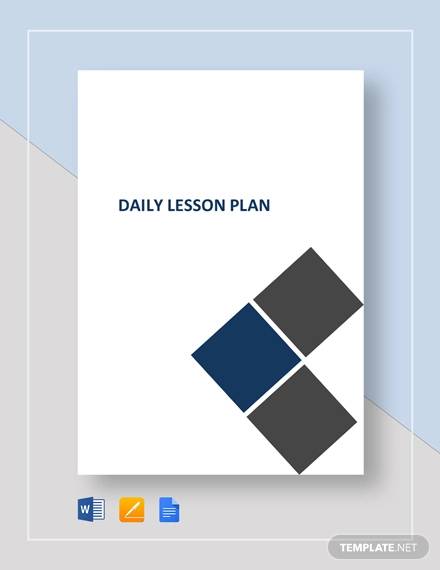
Free Daily Lesson Plan Sample
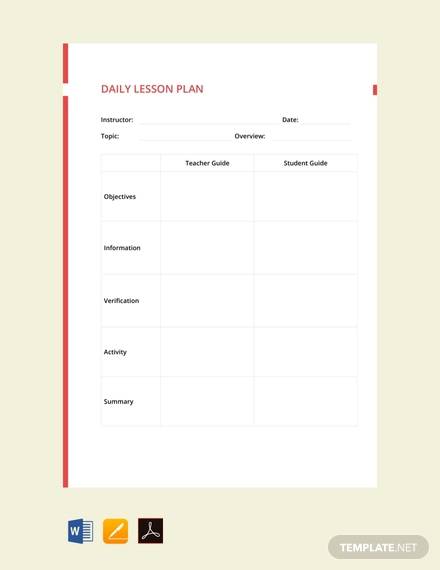
Daily Lesson Plan
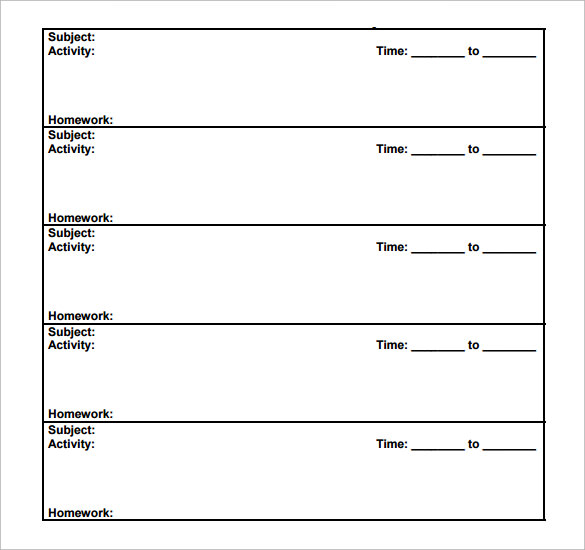
This is a great option for anyone and it spaces for the title of the lesson and the date. There are also different lesson objectives and goals that you can list, including any materials that might be needed, standards and much more.
Daily Lesson Plan PDF
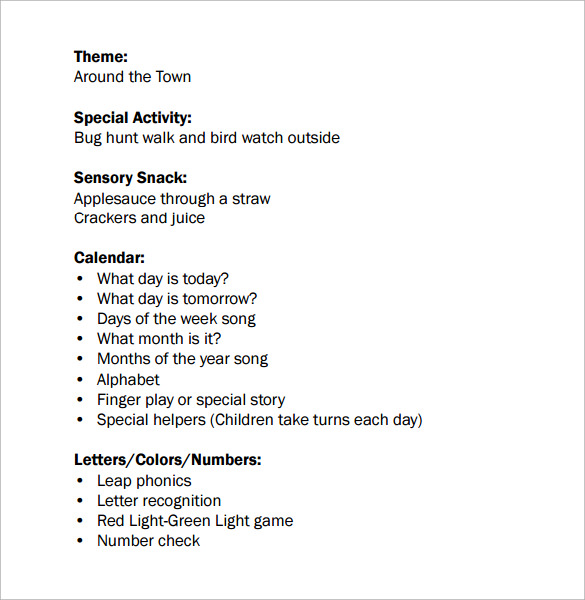
This is a PDF format that you can use that has the name of the teacher, the day number, the subject, the level and the name of the plan. You can also write the unit theme, the understandings that should be taken from the lesson and the questions to ask the students.
Free Daily Lesson Plan
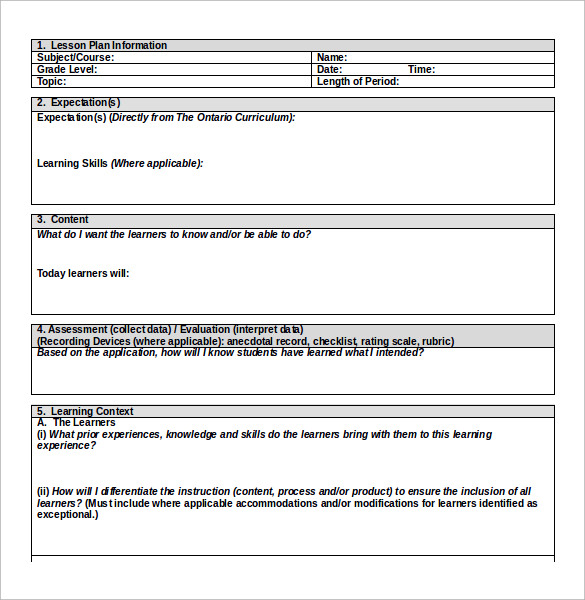
This is another simple template that you can use and it has multiple slots that you can fill in. You can fill in the subject, activity, homework, date and time for everything. You can also write down anything that you want to remember, such as important details.
Daily Lesson Plan Sample
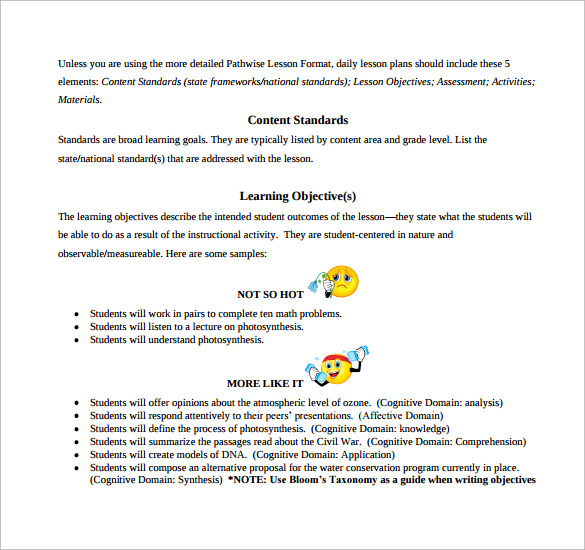
If you are looking for one where you can fill in the details, including what grade the plan is for, then this is perfect. You can write down the topic or theme, the standards that need to be addressed and the key content, including culture, skills and vocabulary to cover.
Blank Daily Lesson Plan
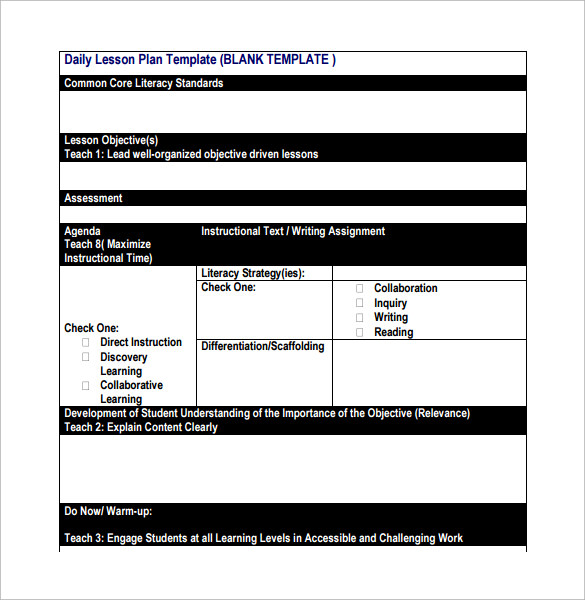
Daily Lesson Substitute Plan
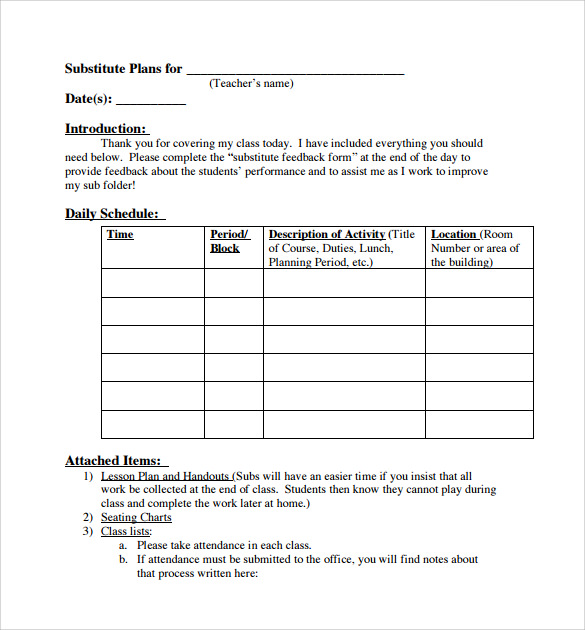
Daily Training Lesson Plan
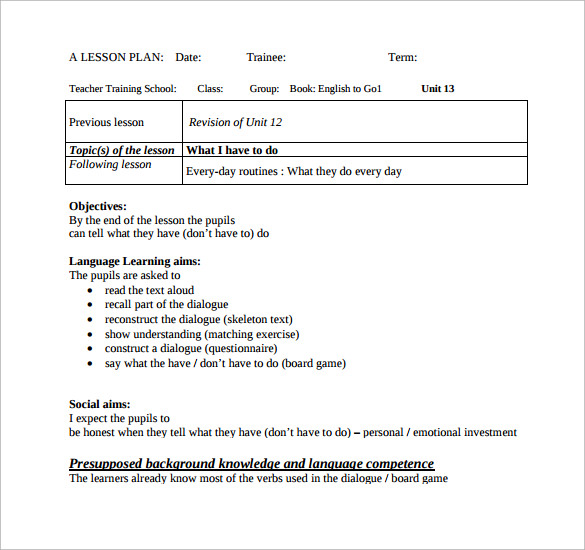
Student Daily Lesson Plan
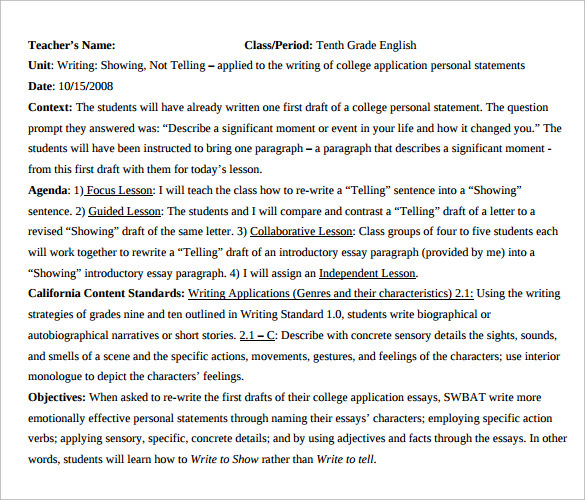
Daily Lesson Plan Objective
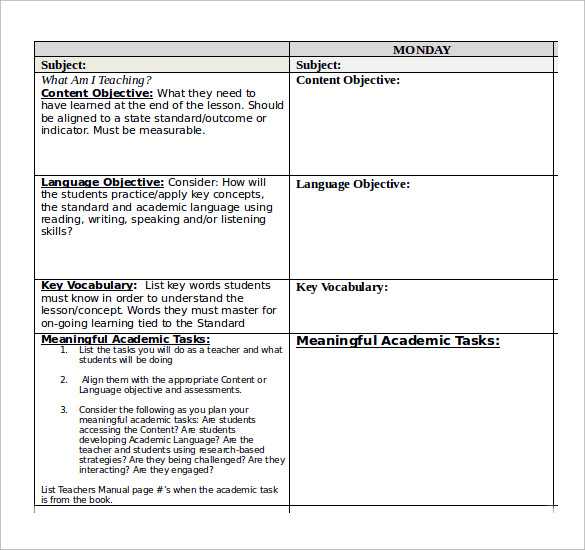
humanresources.dearbornschools.org
Daily Lesson Plan Format
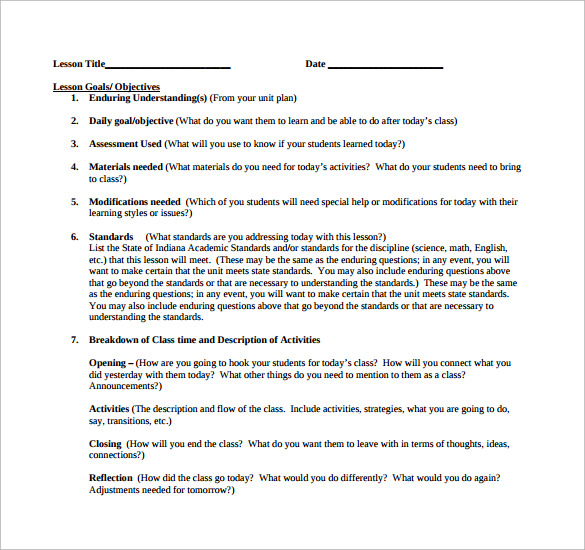
Benefits of Using a Sample Daily Lesson Plan Template
These templates can make it easier to know what you need to teach your class or students every day. This is a great way to plan out your year, month or even week on a regular basis. You can keep track of what has been taught since you can look back on the daily plans. Also, it can help you if you are suddenly sick and need to be out of the class for the substitute teacher to look at and see where you are.You can also see Unit Lesson Plan Templates.
When To Use A Sample Daily Lesson Plan Template?
These plans can be used at any point for those who are teaching students. It can help you to keep track of what you have taught and what you need to teach them within a certain time period. It is also great for letting any substitute teacher know what they would need to cover during the time that you are out and what the students have already been taught.
How to Create a Sample Daily Lesson Plan Template
These lesson plans are easy to create and you should start out by finding the template that would best work for you. Once you have found it, then go ahead and download it and print it out. Once that is done, then you can start filling it out with the required information for every class, especially if you are going to be out for a day or more to let the substitute know what they need to teach.
These daily lesson plan templates will make it easier for you to plan what you will be teaching to your class on a daily basis. You can make them complicated or easy, depending on your needs and you can change them up to ensure that everything is taught. They are also ideal for leaving for substitute teachers.You can also see Math Lesson Plan Templates.
If you have any DMCA issues on this post, please contact us!
Related Posts
Weekly Schedule Samples & Templates
Contractual Agreement Samples & Templates
FREE 9+ Amazing Sample Church Bulletin Templates in PSD | PDF
Sample Business Card Templates
Sample Cashier Job Descriptions
Questionnaire Samples
FREE 10+ Sample HR Resource Templates in PDF
FREE 49+ Sample Job Descriptions in PDF | MS Word
FREE 16+ Nonprofit Budget Samples in PDF | MS Word | Excel | Google Docs | Google Sheets | Numbers | Pages
FREE 13+ Academic Calendar Templates in Google Docs | MS Word | Pages | PDF
FREE 10+ How to Create an Executive Summary Samples in Google Docs | MS Word | Pages | PDF
FREE 23+ Sample Event Calendar Templates in PDF | MS Word | Google Docs | Apple Pages
Company Profile Samples
FREE 10+ Leadership Report Samples [ Development, Training, Camp ]
FREE 24+ Sample Payment Schedules in PDF | MS Word
